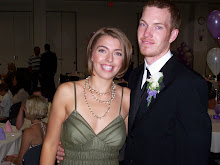
Hey guys!
Welcome back, and I trust that you had an excellent and productive break. Today we will begin our study of transactive writing - writing that features an active transfer of information from writer to reader. This is truly a wide-ranging area of the English language, as it encompasses everything from recipes to feature articles. To simplify it, we will separate them into the two categories that are recognized in the Kentucky Writing Portfolio - transactive writing (news, features, editorials, persuasive letters, etc.), and transactive with an analytical focus (essays, reviews, etc.).
For this unit, we will focus on the concept of persuasive transactive writing. While there may be other significantly persuasive types of writing, the most common are as follows:
Persuasive Letter - Simply put, a letter to change someone's opinion on an issue.
Letter to the Editor - Letter sent to a newspaper by a reader concerned with an issue.
Editorial - Letter written by the editorial board of a newspaper, publication, or group that states their position on a particular issue.
Speech - Style of writing is similar to a persuasive letter, but is written with the intention of addressing an audience.
The unit will cover the following over the next three to four weeks, in order:
- A discussion of persuasive techniques in writing and oration.
- The format and delivery of an academic debate.
- The preparation and writing of a persuasive letter.
The first part of the assignment, a review of persuasive techniques, will take place in class. The second part, the format and delivery of an academic debate, is discussed below. Finally, the preparation for the persuasive letter will take place in class, with the assignment being posted online at a later date.
DEBATE ASSIGNMENT
Debates are something that have existed for hundreds of years; in fact, debate was one of the best ways to showcase your academic skill and knowledge as far back as ancient Greek times. For this assignment, we will be utilizing the Australasian debate format - a format that I am roundly familiar with, as I functioned as an adjudicator for the statewide Private School Debating Competition in Melbourne, Australia this year.
1. As a group, you are to read the following webpages detailing each of the roles in the debate.
http://www.actdu.org.au/archives/actein_site/owndebate_.html#affirmative
http://www.actdu.org.au/archives/actein_site/basicskills.html#adefinition
Your group will consist of yourself and two others that have been put on your team. I am assigning the teams, as I want the teams to be evenly matched. It is important to consider that you will be debating for two reasons - one, your points depend on it, and two, your group's success (and their points) depends on it. As such, it is imperative that you prepare extremely well for these debates.
2. In groups, you will have to work out the role that you will be playing in the debate. I will give a pool of topics that can be considered, but I have to have two groups for a topic, and I have to have a group that is affirmative and a group that is negative. When selecting what speaker to have at each position, consider that your first speaker is not going to have to rebut, but your final speaker will have to rebut, so you can select for charisma to go first, with rational consideration to go last.
3. Research and prepare your material for the debate.
4. WIN YOUR DEBATE!
You will be graded on your presentations, with 120 points being available. I have a rubric that I will furnish you with in class that assesses your Rhetorical Awareness, Organization, Persuasive Techniques, Clarity and Tone, and Professionalism, with 25 being awarded for each section. A further 20 points will be set aside for rebuttals.
For those who are a little lost and still a little unsure of what this debating thing is all about, don't worry - we will cover it in class. Until then, you may also like to look at the presidential debates of last Fall at the following website:
http://elections.nytimes.com/2008/president/debates/first-presidential-debate.html
Good luck!
Mr. Parsons


No comments:
Post a Comment